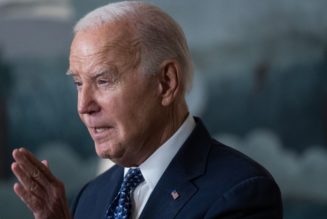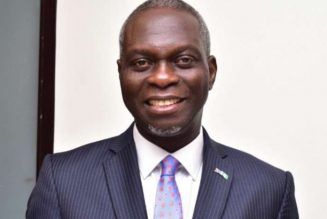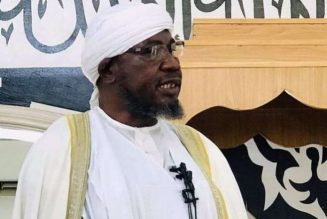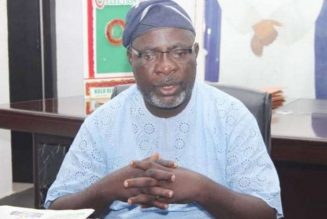Joe Biden and Kamala Harris were sworn into the office of the president and vice president of the United States, respectively, on Wednesday (January 20). Shortly after, the new POTUS took the podium outside the U.S. Capitol to address the nation for the first time as its leader, in a speech that again and again stressed unity, togetherness, and healing amid a turbulent time.
“My fellow Americans,” Biden began. “This is America’s day. This is democracy’s day, a day of history and hope.”
 Alex Wong/Getty Images
Alex Wong/Getty ImagesBiden largely stressed unity and healing, amid the rising threat of white supremacy and domestic terrorism, as well as the continued deadliness of COVID-19, which “silently stalks” the nation amid 400,000 deaths in America since last March. As he spoke, Biden returned to the topic of togetherness, saying that we can fight all that ails Americans with unity, which can help teach children, reward work, rebuild the middle class, defeat the virus, and implement racial justice.
“I know speaking of unity can sound like foolish fantasy these days,” he admitted. But he pointed to the historical fight between “the American ideal” and the divisions that have never been more present in our contemporary culture. He touched on past wars and plagues that America has weathered, again returning to the idea of togetherness. “History, faith, and reason have showed the way of unity.”
He offered a seemingly bygone method for Americans to do so: showing dignity and respect for their neighbors. Biden also stressed the importance of unity on progress and the advancement of the nation, instead of the perils of hopelessness. “If we do that, I guarantee you we will not fail. We have never, ever failed in America when we’ve acted together. So today, in this time, in this place, let’s start fresh,” he said, echoing a similar sentiment tweeted from his official account this morning.
While largely avoiding any potshots at the previous administration — former president Donald Trump was not in attendance, though former vice president Mike Pence was — Biden condemned the culture of manipulated facts that characterized his predecessor’s four years in office. He evoked the Capitol itself, just two weeks ago the site of an insurgency carried out by Trump’s supporters, for its healing symbolism. That government takeover failed, he said in a strong, clear voice, adding that “it will never happen.”
He also touched on the fight for women’s suffrage and remarked on the long journey that leads all the way to Harris’s swearing in, eliciting applause. Repeating one of his biggest campaign lines, the president addressed those who do not support him by welcoming their disagreement and “the right to dissent peacefully.” “I will be a president for all Americans,” he added once again, saying he’d fight just as hard for those who didn’t vote for him. It was one of the clearest signs of his call to unity, and he went further into detail to try to heal a divided country.
“We must end this uncivil war that pits red against blue, rural versus urban, conservative versus liberal,” Biden said. “We can do this if we open our souls instead of hardening our hearts, if we show a little tolerance and humility, and if we’re willing to stand in the other person’s shoes.”
The virus weighed heavy on the day, with masks prevalent and social distancing in place at the Capitol. It’s a thread Biden picked up near the end of his remarks: “We need all our strength to persevere through this harsh winter.” He offered taught talk on the virus as well as one final call for unity, before a moment of silence for the unfathomable 400,000 Americans who have died because of COVID-19. It was a powerful and tacit acknowledgement of the severity and enormity of the virus, as well as its impact on the country, something characteristically absent from the previous administration.
He closed on talk of being judged (ideally favorably) by future generations as well as reminding of his sacred oath he’d just taken on his old family bible. “Together, we shall write an American story of hope, not fear, of unity not division, of light, not darkness.”










